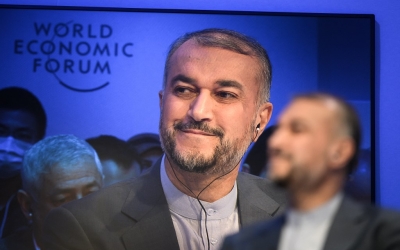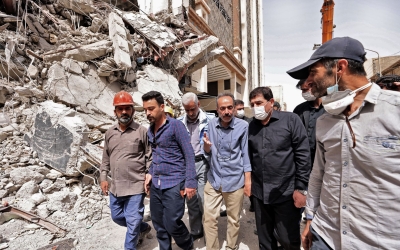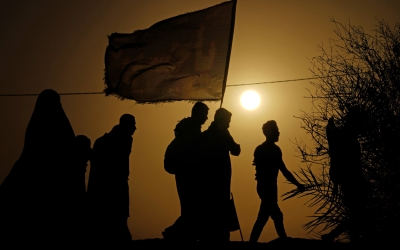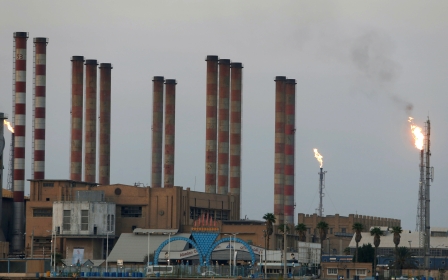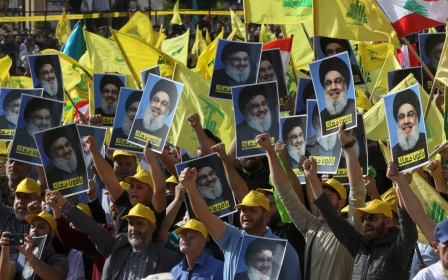Iranian press review: Armed forces flex muscles in message to US, Israel
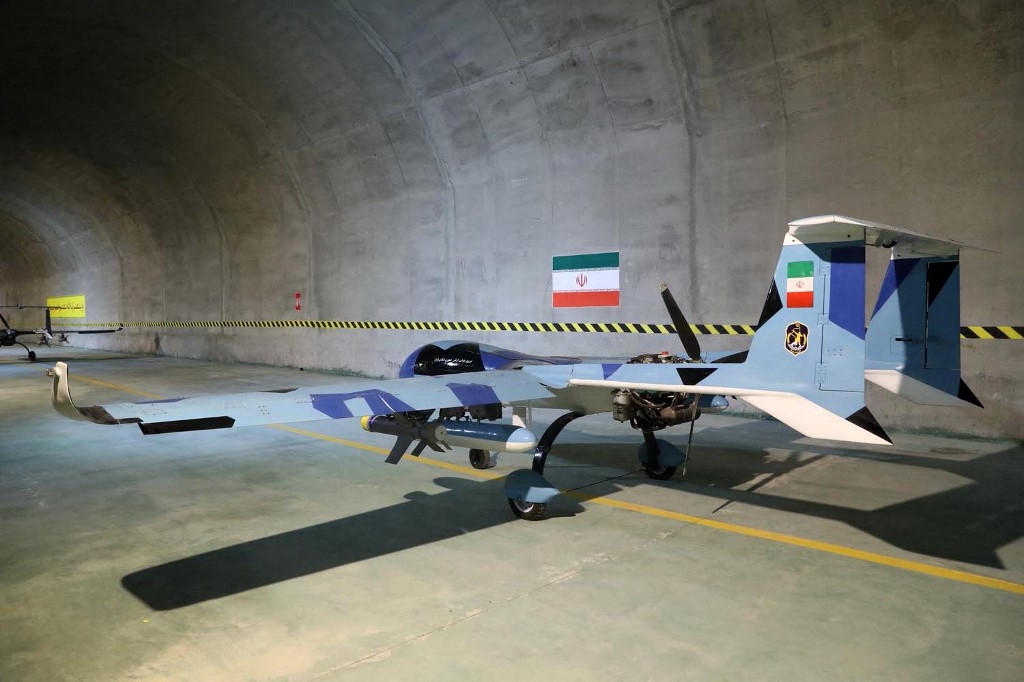
Tehran steps up military threats against western targets
In a chain of events, Iranian military forces have intensified threats and attacks on targets linked to western countries and their allies in the Middle East, amid a deadlock in talks with the US over a potential return to the 2015 nuclear deal.
Since the US under Donald Trump abandoned the deal in 2018 and imposed international sanctions on Iran's oil, gas, petrochemical exports and the country's banking system, tensions between the two enemies have increased dramatically.
On Saturday, the Islamic Republic of Iran Army, Artesh, unveiled an underground drone base named 313 Strategic Base, near the city of Kermanshah, local media reported.
The Jam-e Jam daily wrote that the most significant drones stationed in the base were Kian, Arash and Omid suicide drones. According to the daily, these operate as the "spiral bone" of Iran's official army's drone forces.
This was the first such unveiling by Artesh, as Iran's military drone programme is directed and controlled by the Islamic Revolutionary Guard Corps (IRGC). In 2019, Washington placed the IRGC on its list of Foreign Terrorist Organizations.
The location of the drone base also drew experts' attention, as it is close to the same city where Israel attacked an IRGC drone facility in February.
Artesh disclosed the base a few days after Iran seized two Greek oil tankers in the Persian Gulf. ISNA news agency reported that the IRGC air force confiscated these tankers in retaliation at Athens' seizure of Iran's crude oil carried by a Russian-flagged tanker off Greece in April.
Meanwhile, Iraqi armed forces backed by Iran threatened they would carry out more attacks on US forces in Iraq. In an interview with Iran's official news agency IRNA, Nasr al-Shammari, a spokesperson for the Iraqi Harakat Hezbollah al-Nujaba, said that Shia armed groups would continue combating the US forces "to expel the American occupier forces from Iraq. The initial strategy is to target the US forces and their interests in Iraq, chasing them even inside their bases and imposing the highest tolls on them until they have no way but to escape from Iraq," Shammari said.
He also claimed that Israeli forces had maintained their presence in Iraqi Kurdistan, with active espionage bases run by Mossad.
Fears over unsafe high-rises following building collapse
Following the collapse of a 10-storey building in the southwestern city of Abadan last week, public fear is increasing about the safety of high-rises in other Iranian cities.
In the recent collapse of the Metropol Building, at least 37 people were killed, and seven are still missing. The incident raised the alarm about numerous buildings constructed across the country without meeting necessary standards.
On Monday, the Hamshahri daily, belonging to Tehran Municipality, warned that 129 buildings in the capital, Tehran, were categorised as "dangerous" due to risks of collapse and fire. So far, the daily and municipal officials have rejected public demands to name those buildings.
However, other sources said that the actual number of buildings at risk is much higher, and over 3,500 buildings in Tehran are in unsafe conditions.
Despite regulations by Iran's Construction Engineering Organization, well-connected people can receive the required construction permissions without implementing safety protocols. However, political activists such as Abbas Abdi believe that the incident in Abadan demonstrated fundamental problems more severe than "just bribing" officials for permission.
"There are other types of corruption worse than giving bribes," Abdi wrote in an opinion piece under the headline: Life without standards. "Have we ever asked ourselves why a rich person who uses all means to escape paying tax, built and renovated police stations in Abadan, or assisted the judiciary to construct prisons?" he added, referring to activities by Hossein Abdolbaqi, the owner of the Metropol Building.
Five million pilgrims to travel to Iraq in Arbaeen
Tehran and Baghdad are due to sign bilateral agreements to facilitate the pilgrimage of about five million Iranians who will travel to Iraq for this year's Arbaeen religious ceremonies, Tasnim news agency reported.
Before the pandemic, millions of Iranians participated in the Arbaeen walk from Iranian cities to Iraq's Karbala, but during the past two years the number of pilgrims declined to fewer than one million, due to health restrictions.
The news agency wrote that after the removal of pandemic-related restrictions in both countries, officials predicted that between three to five million Iranian pilgrims would visit Iraq.
Tasnim added that during Arbaeen, the Khosravi and Chazabeh border crossings between Iran and Iraq would operate 24 hours a day.
Other reports from government offices indicated that Iranian authorities were preparing for a massive Arbaeen march in September as a show of power and demonstration.
On Tuesday, Yadollah Azizi, a provincial deputy at the powerful Setad organisation, dubbed the Arbaeen march a "military drill", adding that Setad would found an ice-making factory at the Mehran border crossing.
"As this year's massive Arbaeen military drill takes place during the hot summer, the Setad will build an ice factory to provide cold and hygiene water to pilgrims," Borna news agency quoted Azizi as saying.
Arbaeen is one of the most important religious ceremonies for Shia Muslims, taking place every year on the 40th day of the killing of Hussein ibn Ali, the Prophet Muhammad's grandson.
*Iranian press review is a digest of news reports not independently verified as accurate by Middle East Eye
Middle East Eye delivers independent and unrivalled coverage and analysis of the Middle East, North Africa and beyond. To learn more about republishing this content and the associated fees, please fill out this form. More about MEE can be found here.


